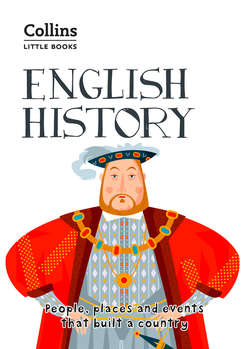Читать книгу English History: People, places and events that built a country - Robert Peal - Страница 15
Оглавление899 | Alfred the Great
Alfred became King of Wessex, an Anglo-Saxon kingdom in the south of England, in 871. Aged only 23, he was immediately thrown into the long-running war with the Viking Great Heathen Army, who had by now settled throughout much of England. In 878, a Viking army led by King Guthram attacked King Alfred in Chippenham while he was celebrating Twelfth Night, the last day of Christmas. Alfred escaped the attack, but many of his men were slaughtered. Almost defeated, Alfred retreated to the marshes of Somerset, where he began to organise his counter-attack. Later that year, Alfred defeated Guthram’s Vikings at the Battle of Edington.
Alfred and Guthrum agreed to divide England by a diagonal line from the mouth of the River Mersey in the north-west, to the mouth of the Thames in the south-east. Alfred ruled the land to the south of this line, and fortified it against any future Viking attacks. In 899, Alfred died. His defeat of the Vikings, and rule of Wessex laid the foundation on which his descendants would build the unified Anglo-Saxon Kingdom of England. Today, Alfred remains the only king in English history to be remembered as ‘the Great’.
Awe Inspiring Images
